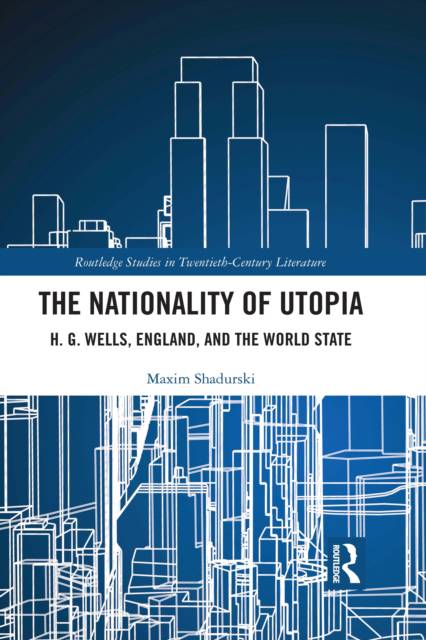
- Retrait gratuit dans votre magasin Club
- 7.000.000 titres dans notre catalogue
- Payer en toute sécurité
- Toujours un magasin près de chez vous
- Retrait gratuit dans votre magasin Club
- 7.000.0000 titres dans notre catalogue
- Payer en toute sécurité
- Toujours un magasin près de chez vous
Description
Since its generic inception in 1516, utopia has produced visions of alterity which renegotiate, subvert, and transcend existing places. Early in the twentieth century, H. G. Wells linked utopia to the World State, whose post-national, post-Westphalian emergence he predicated on English national discourse. This critical study examines how the discursive representations of England's geography, continuity, and character become foundational to the Wellsian utopia and elicit competing response from Wells's contemporaries, particularly Robert Hugh Benson and Aldous Huxley, with further ramifications throughout the twentieth century. Contextualized alongside modern theories of nationalism and utopia, as well as read jointly with contemporary projections of England as place, reactions to Wells demonstrate a shift from disavowal to retrieval of England, on the one hand, and from endorsement to rejection of the World State, on the other. Attempts to salvage the residual traces of English culture from their degradation in the World State have taken increasing precedence over the imagination of a post-national order. This trend continues in the work of George Orwell, Anthony Burgess, J. G. Ballard, and Julian Barnes, whose future scenarios warn against a world without England. The Nationality of Utopia investigates utopia's capacity to deconstruct and redeploy national discourse in ways that surpass fear and nostalgia.
Spécifications
Parties prenantes
- Auteur(s) :
- Editeur:
Contenu
- Nombre de pages :
- 220
- Langue:
- Anglais
- Collection :
Caractéristiques
- EAN:
- 9781032090139
- Date de parution :
- 30-06-21
- Format:
- Livre broché
- Format numérique:
- Trade paperback (VS)
- Dimensions :
- 150 mm x 226 mm
- Poids :
- 340 g

Les avis
Nous publions uniquement les avis qui respectent les conditions requises. Consultez nos conditions pour les avis.






